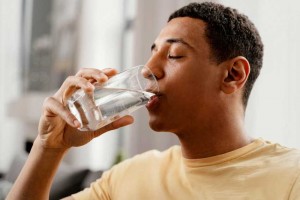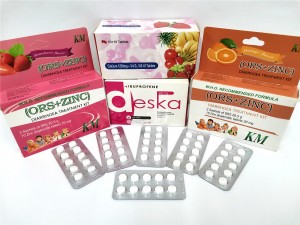According to the World Health Organization, dehydration is a disease caused by excess water loss from the body and is very common in infants, especially young children.In this case your body doesn’t have the amount of water it needs and now as summer begins they may end up not being hydrated for various reasons meaning they are losing a lot more water than what they are consuming and eventually dehydration.
In an interview with HT Lifestyle, BK Vishwanath Bhat, MD, Paediatrician and MD, Radhakrishna General Hospital, Bangalore explained: “Dehydration means an abnormal loss of fluid in the system. It is caused by vomiting, loose stools and excessive sweating. Dehydration Divided into mild, moderate and severe. Mild weight loss up to 5%, 5-10% weight loss is moderate weight loss, more than 10% weight loss is severe dehydration. Dehydration is divided into three main types, where sodium levels are hypotonic (mainly loss of electrolytes), hypertonic (mainly water loss) and isotonic (equal loss of water and electrolytes).”

Dr Shashidhar Vishwanath, Principal Consultant, Department of Neonatology and Paediatrics, SPARSH Women’s and Children’s Hospital, agrees, saying: “When we take in less fluid than we put out, there is an imbalance between the input and the output of your body. It’s very difficult in the summer. Common, mostly because of vomiting and diarrhea. When children get a virus, we call it viral gastroenteritis. It’s an infection of the abdomen and intestines. Every time they vomit or have diarrhea, they lose fluids as well as electrolytes like sodium, Potassium, chloride, bicarbonate and other important salts in the body.”
Dehydration occurs when excessive vomiting and frequent watery stools occur, as well as exposure to extreme heat that can lead to heat stroke.Dr. BK Vishwanath Bhat emphasized: “Mild dehydration with 5% weight loss can be easily managed at home, if 5-10% weight loss is called moderate dehydration, and adequate fluids can be given if the infant is able to take orally. If the infant Not getting enough fluids requires hospitalization. Severe dehydration with a weight loss of more than 10 percent requires hospitalization.”
He added: “Thirsty, dry mouth, no tears when crying, no wet diapers for more than two hours, eyes, sunken cheeks, loss of elasticity of the skin, soft spots on top of the skull, listlessness or irritability are some of the causes. Signs. In severe dehydration, people can start to lose consciousness. Summer is a time for gastroenteritis, and fever is part of the symptoms of vomiting and poor movement.”

Since it’s caused by less water in the body, Dr. Shashidhar Vishwanath notes that initially, children feel more restless, thirsty, and eventually they become more tired and eventually lethargic.”They’re urinating less and less. In extreme cases, the child may become quiet or unresponsive, but that’s very rare. They’re also urinating much less often, and they may also have a fever,” he revealed. , because that’s a sign of infection. Those are some of the signs of dehydration.”
Dr Shashidhar Vishwanath added: “As dehydration progresses, their tongue and lips become dry and their eyes look sunken. The eyes are quite deep inside the eye sockets. If it progresses further, the skin becomes less elastic and loses its natural properties. This condition is called ‘reduced skin swelling.’ Eventually, the body stops urinating as it tries to conserve the remaining fluid. Failure to urinate is one of the main signs of dehydration.”
According to Dr. BK Vishwanath Bhat, mild dehydration is treated with ORS at home.He elaborates: “Moderate dehydration can be treated at home with ORS, and if the child cannot tolerate oral feeding, he/she may need to be admitted to the hospital for IV fluids. Severe dehydration requires hospital admission and IV fluids. Probiotics and zinc supplements are important in treating dehydration. Antibiotics are given for bacterial infections. By drinking more water, we can prevent dehydration in summer.”
Dr. Shashidhar Vishwanath agrees that mild dehydration is common and easy to treat at home.He advises: “When a baby or child drinks or eats less, the first step is to make sure the child is drinking enough fluids. Don’t worry too much about solid foods. Make sure you give them fluids all the time. Water may be a good first choice, but the best Add something with sugar and salt. Mix one pack of ORS with a liter of water and continue as needed. No specific amount.”

He recommends giving it as long as the child is drinking, but if the vomiting is severe and the child cannot control the fluids, then you must consult a pediatrician to assess what is happening and give the child medication to reduce vomiting.Dr. Shashidhar Vishwanath warns: “In some cases, even if they are given fluids and the vomiting does not stop after giving oral medication, the child may have to be hospitalized for intravenous fluids. The child must be placed on a dropper so that it can pass through the dropper. Give fluids. We offer a special fluid with salt and sugar.”
He said: “The idea of intravenous (IV) fluids is to make sure that whatever fluid the body loses is replaced by IV. When there is severe vomiting or diarrhea, IV fluids are helpful because it gives the stomach a rest. I think To reiterate, only about one-third of children who need fluids need to come to the hospital, and the rest can actually be managed at home.”
Since dehydration is common and almost 30% of doctor visits are dehydrated during the peak summer months, parents need to be aware of their physical condition and pay attention to its symptoms.However, Dr Shashidhar Vishwanath said parents should not be overly concerned when solid food intake is low and they should be concerned about their child’s fluid intake.”When kids aren’t feeling well, they don’t want to eat solids,” he said. “They prefer something with liquids. Parents can give them water, homemade juice, homemade ORS solution, or four packs of ORS solution from the pharmacy.”
3. When vomiting and diarrhea persist, it is best to be analyzed by the pediatric team.
He advises: “Other preventive measures include hygienic food, proper hygiene, washing hands before meals and after using the bathroom, especially if someone in the household is vomiting or has diarrhea. It is important to maintain hand hygiene. It is best to avoid going out in areas where hygiene is a problem. Meals, and more importantly, parents must be aware of the signs and symptoms of severe dehydration, and they know when to send their child to the hospital.”
Post time: Apr-22-2022




